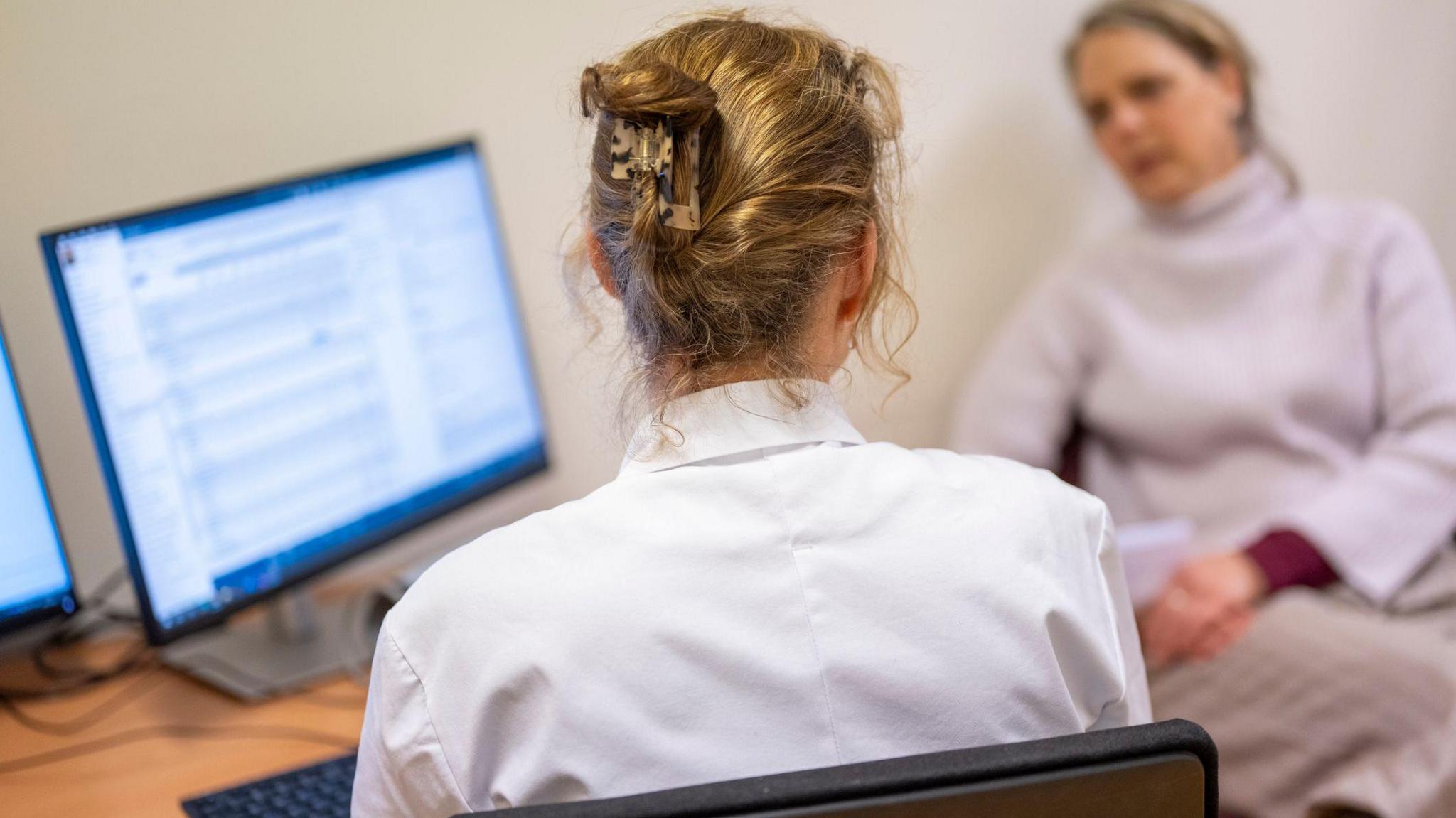GP surgeries to get £531m for recruitment over three years

- Published
Scotland's health secretary has announced an extra £531m will be allocated to recruit staff in GP surgeries over the next three years.
Neil Gray said the investment would make it easier for people to access GP services and help deliver digital prescriptions.
Earlier this year the British Medical Association entered a formal dispute with the Scottish government over the share of the health budget allocated to GP surgeries.
The BMA said the share had fallen against inflation every year since 2008, and £290m was needed to fix the gap.
The latest funding for GPs is subject to future budgets being agreed.
However the Scottish government said it would initially give £98m in the 2026-27 budget, £183m the following year and £249m in the third year.
GPs in 'formal dispute' with ministers over funding
- Published26 June
SNP will create network of walk-in GP services, says Swinney
- Published13 October
GPs question SNP plans for new drop-in services
- Published14 October
Separately, resident doctors, formerly known as junior doctors, are balloting on potential strike action after failing to reach a deal on pay with the Scottish government.
Neil Gray said the government had been "listening carefully" to the views of Scotland's GPs, and that the investment was not a pay deal - but was about "getting more staff into general practice".
He said: "This is the largest investment in core GP services to date in Scotland and will significantly boost recruitment from next year, helping to deliver the capacity needed to improve services for patients.
"This funding will help us as we shift the focus of care from acute to community."
The BMA said the money had been agreed after a "robust but constructive" set of negotiations and was a "step in the right direction".
Dr Iain Morrison, chairman of BMA Scotland's GP committee said: "For some time, we have been clear that the only way to put general practice in Scotland on a sustainable footing for the future and to improve access for patients was direct investment into practices to recruit and retain GPs.
"This investment should finally enable the profession to feel optimistic about the future and provides the opportunity to make working in general practice in Scotland the rewarding, safe and sustainable career it should be once again."
How many GPs work in Scotland?
The number of GPs by headcount in Scotland has actually increased in the last 10 years - from 4,393 in 2015 to 4,582 in 2025 - but this does not take into account whether they work full-time or part-time.
Another way to measure the workforce is by looking at whole time equivalents (WTEs) - a unit that measures the number of full-time positions.
Scotland's WTE figure has decreased between 2015 and 2025, from 3,675.1 to 3,591.5.
The number of GP practices in Scotland has also fallen by 10% over the past decade, from 987 in July 2015 to 885 in July 2025.
The funding news comes two weeks after First Minister John Swinney announced plans to launch drop-in health services, which will be run by GPs and nurses.
Initially, the Scottish government plans to roll out 15 of these sites, the first of which is due to be operational within the year.
Swinney said they would operate seven days a week, from noon to 20:00, to tackle "the 08:00 rush for appointments" putting pressure on surgeries.
The locations for these sites have not yet been confirmed, but Swinney said they would be based in communities, "on your local high street, near your child's school, or close to your workplace".
But the Royal College of General Practitioners (RCGP) was sceptical over how these centres would be staffed, particularly as Scotland's GP workforce has fallen in the last 10 years.
The college's vice chair, Dr Chris Williams, also said that Swinney's promise to provide one million more appointments in a year was "not that large" compared to the current level of general practice activity.
At the moment, a range of healthcare professionals - GPs, nurses and more - provide 720,000 appointments a week in Scotland.
'Too little, too late'
Speaking after the £531m funding was announced, the RCGP said the decision had the "potential to return general practice in Scotland to a more sustainable footing".
Its chairman in Scotland, Dr Chris Provan, said: "We are confident that this new direction of travel from the Scottish government will in time deliver the world-class care that patients deserve."
Scottish Conservatives health spokesman Dr Sandesh Gulhane MSP said: "This is too little too late from the SNP – GPs have been crying out for additional funding and support for years.
"On their watch, GP surgeries are in crisis – patients can't get appointments, vacancies remain unacceptably high and front line doctors are burning out.
"This funding – which won't reach the front line until after next May's election – will only work if SNP ministers finally address the workforce crisis they have created."
Scottish Labour's health spokesperson Jackie Baillie said she hoped the funding would help more people enter the workforce - but that the SNP had "floundered" over GPs.
She said: "It is right that the Scottish government has finally recognised the funding challenges they have created for GP surgeries. However, it is clear they will not see a penny of this cash before the Holyrood election in May next year, despite the pressure they are under."